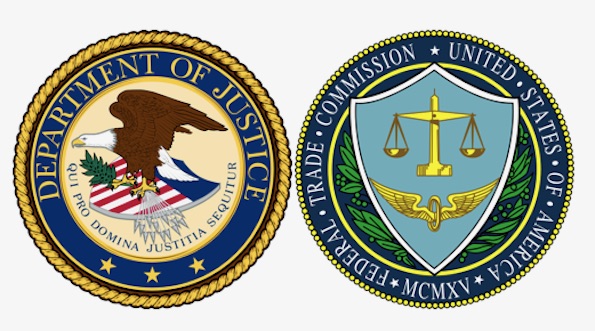Showing results for: “jose guerena”
Google and Shifting Conceptions of What It Means to Improve a Product
Judges sometimes claim that they do not pick winners when they decide antitrust cases. Nothing could be further from the truth. Competitive conduct by its nature harms competitors, and so if antitrust were merely to prohibit harm to competitors, antitrust would then destroy what it is meant to promote. What antitrust prohibits, therefore, is not ... Google and Shifting Conceptions of What It Means to Improve a Product
The Myth of the Cyber Barons
During last week’s antitrust hearing, Representative Jamie Raskin (D-Md.) provided a sound bite that served as a salvo: “In the 19th century we had the robber barons, in the 21st century we get the cyber barons.” But with sound bites, much like bumper stickers, there’s no room for nuance or scrutiny. The news media has ... The Myth of the Cyber Barons
The Virulence of Free Trade
[TOTM: The following is part of a blog series by TOTM guests and authors on the law, economics, and policy of the ongoing COVID-19 pandemic. The entire series of posts is available here. This post is authored by Ramsi Woodcock, (Assistant Professor of Law, University of Kentucky; Assistant Professor of Management, Gatton College of Business ... The Virulence of Free Trade
Announcing the TOTM Symposium on the 2020 Draft Joint Vertical Merger Guidelines
Truth on the Market is pleased to announce its next blog symposium: The 2020 Draft Joint Vertical Merger Guidelines: What’s in, what’s out — and do we need them anyway? February 6 & 7, 2020 Symposium background On January 10, 2020, the DOJ Antitrust Division and the Federal Trade Commission released Draft Joint Vertical Merger ... Announcing the TOTM Symposium on the 2020 Draft Joint Vertical Merger Guidelines
The 2020 Draft Joint Vertical Merger Guidelines: What’s in, what’s out — and do we need them anyway?
On January 10, 2020, the DOJ and FTC released their draft 2020 Vertical Merger Guidelines. “Challenging anticompetitive vertical mergers is essential to vigorous enforcement. The agencies’ vertical merger policy has evolved substantially since the issuance of the 1984 Non-Horizontal Merger Guidelines, and our guidelines should reflect the current enforcement approach. Greater transparency about the complex ... The 2020 Draft Joint Vertical Merger Guidelines: What’s in, what’s out — and do we need them anyway?
The Upsides of Collusion and Concentration
Conspiracies and collusion often (always?) get a bad rap. Adam Smith famously derided “people of the same trade” for their inclination to conspire against the public or contrive to raise prices. Today, such conspiracies and contrivances are per se illegal and felonies punishable under the Sherman Act. It is well known and widely accepted that ... The Upsides of Collusion and Concentration
Should We Break Up Big Tech? A Look Behind the (Political) Scenes
[This post is the sixth in an ongoing symposium on “Should We Break Up Big Tech?” that features analysis and opinion from various perspectives.] [This post is authored by Thibault Schrepel, Faculty Associate at the Berkman Center at Harvard University and Assistant Professor in European Economic Law at Utrecht University School of Law.] The pretense ... Should We Break Up Big Tech? A Look Behind the (Political) Scenes
GDPR After One Year: Costs and Unintended Consequences
GDPR is officially one year old. How have the first 12 months gone? As you can see from the mix of data and anecdotes below, it appears that compliance costs have been astronomical; individual “data rights” have led to unintended consequences; “privacy protection” seems to have undermined market competition; and there have been large unseen ... GDPR After One Year: Costs and Unintended Consequences
A Bargaining Model v. Reality in FTC v. Qualcomm: A Reply to Kattan & Muris
Introduction In a recent article[1] Joe Kattan and Tim Muris (K&M) criticize our article[2] on the predictive power of bargaining models in antitrust, in which we used two recent applications to explore implications for uses of bargaining models in courts and antitrust agencies moving forward. Like other theoretical models used to predict competitive effects, complex bargaining models ... A Bargaining Model v. Reality in FTC v. Qualcomm: A Reply to Kattan & Muris
What Zoom can tell us about network effects and competition policy in digital markets
Zoom, one of Silicon Valley’s lesser-known unicorns, has just gone public. At the time of writing, its shares are trading at about $65.70, placing the company’s value at $16.84 billion. There are good reasons for this success. According to its Form S-1, Zoom’s revenue rose from about $60 million in 2017 to a projected $330 ... What Zoom can tell us about network effects and competition policy in digital markets
This Too Shall Pass: Unassailable Monopolies That Were, in Hindsight, Eminently Assailable
[N]ew combinations are, as a rule, embodied, as it were, in new firms which generally do not arise out of the old ones but start producing beside them; … in general it is not the owner of stagecoaches who builds railways. – Joseph Schumpeter, January 1934 Elizabeth Warren wants to break up the tech giants ... This Too Shall Pass: Unassailable Monopolies That Were, in Hindsight, Eminently Assailable
The European Commission’s Google Android decision takes a mistaken, ahistorical view of the smartphone market
What to make of Wednesday’s decision by the European Commission alleging that Google has engaged in anticompetitive behavior? In this post, I contrast the European Commission’s (EC) approach to competition policy with US antitrust, briefly explore the history of smartphones and then discuss the ruling. Asked about the EC’s decision the day it was announced, ... The European Commission’s Google Android decision takes a mistaken, ahistorical view of the smartphone market







